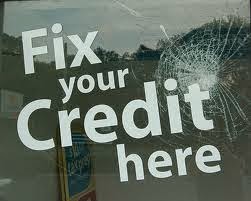If your credit report contains inaccurate information, your score might be negatively affected, making it harder to get a loan or rent an apartment. Do-it-yourself credit repair is the best way to get your credit report back on the right track. You can repair your credit, follow the tips below to get started.
Believe it or not, your overall credit rating also affects your auto insurance premiums. So if you want to find cheap, quality car insurance, one way you can save money is to tie up those loose ends with the creditors. Insurance is all about risk, and someone with bad credit naturally poses a larger risk. Fix your credit rating and you can save some real dough on your insurance.
Obtain a copy of your credit report at regular intervals, and maintain a careful watch for agencies to report your repair efforts. If you are clearing up negative issues on your credit history, monitoring your report allows you to verify that agencies are correctly administering information on your status and that additional negative reports are not being made.
Try credit counseling instead of bankruptcy. Sometimes it is unavoidable, but in many instances, having someone to help you sort out your debt and make a viable plan for repayment can make all the difference you need. They can help you to avoid something as serious as a foreclosure or a bankruptcy.
If you paid off an account, do not try to have it removed. Paid off accounts do have a positive effect on your FICO score, especially as they age. Every item on your report that shows that you have at some point made payments is a positive item.
Read the Fair Credit Reporting Act because it can be of great help to you. Reading this bit of information will let you know your rights. This Act is approximately an 86 page read that is filled with legal terms. To be sure you know what you're reading, you may want to have an attorney or someone who is familiar with the act present to help you understand what you're reading.
There are many books and websites about how to repair credit. Taking the time to learn how to go through this process will be quite beneficial to you. All of the information that you find will be quite valuable to you either now to repair your credit, or sometime in the future to avoid having to go through this again.
While patience is an important part of the credit repair process, you should always follow up on letters you send, no matter who the recipient is. It might be hard to believe but some credit bureaus and debt collectors use the ostrich's strategy (i.e. burying their heads in the sand) to deal with debtor's letters. Send more letters after unanswered ones until you get a reply.
If you are trying to repair your credit score, check your credit report to make sure all of your positive credit is being reported. Credit report disputes aren't just for wrongly-noted negative marks. If you have a loan or account in good standing that isn't on your report, be sure to contact the holder of the loan to request that they report it.
When repairing your credit, look over your credit report for errors. Look for duplicity of information, accounts that do not belong to you, late payment reporting which are false (always keep record of payments for backup) and records that are older than seven years. Finding errors and alerting the credit bureaus is proactive in repairing your credit.
As shown here, there are many different ways to improve your credit record. Try implementing just a few of these tips, and see how your credit score rises as a result. DIY credit repair takes some discipline, but it can work wonders for your score.


No comments:
Post a Comment